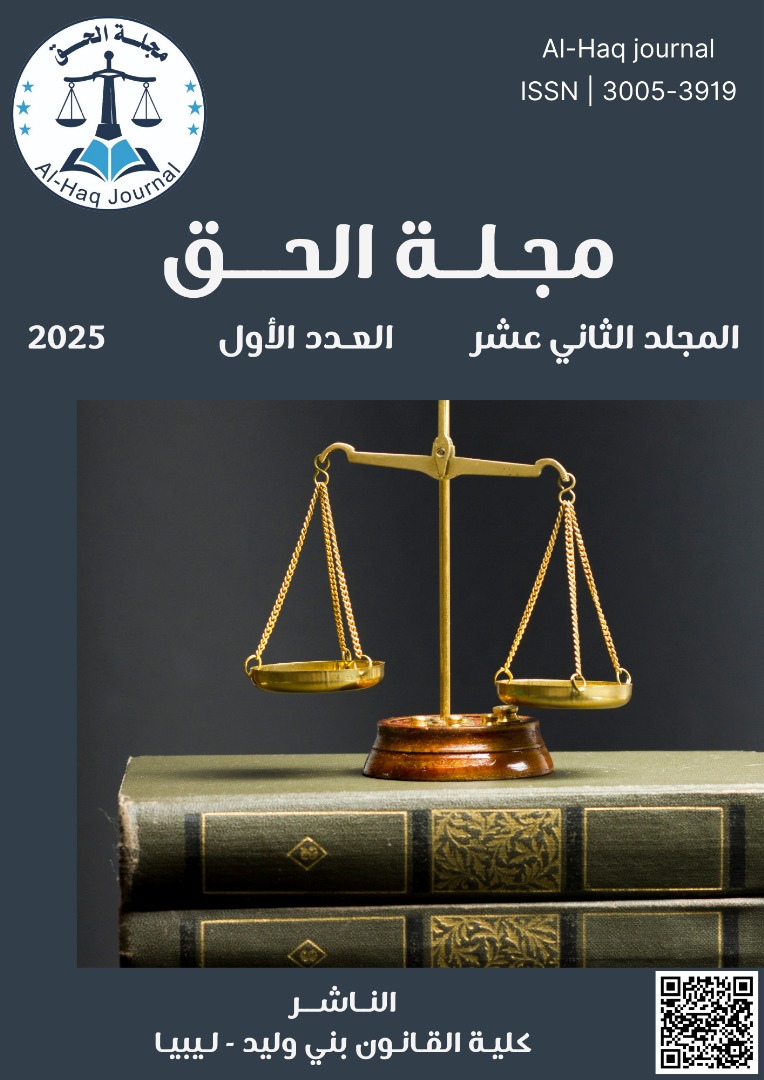The legal status of artificial intelligence in international and regional legislation
DOI:
https://doi.org/10.58916/alhaq.v12i1.387Keywords:
Artificial intelligence, comparative law, legal liability, data protection, AI ethicsAbstract
The world is witnessing rapid progress in the field of artificial intelligence, posing legal challenges related to liability, data protection, privacy, and intellectual property rights. This study aims to critically analyze relevant international and regional legislation and initiatives, comparing the European experience, which adopts a comprehensive, risk-based approach, and the more flexible, innovation-focused American experience, versus the Arab situation, which is still in the process of formulating strategies without binding legislation. The study relied on a descriptive, analytical, and comparative methodology, examining legal texts, reports from international organizations, and academic literature. The results revealed significant disparities in regulatory approaches, highlighting the need for balanced legal solutions that address common challenges.
Downloads
References
أبو العينين، محمد (2019). قراءة في التشريعات العربية المنظمة للذكاء الاصطناعي: الإمارات نموذجًا. مجلة الشريعة والقانون، 36(2).
أبو رحاب، محمد جمال عزاز (2025). المسؤولية المدنية الدولية الناشئة عن قرارات الذكاء الاصطناعي: إشكالية الفعل الضار العابر للحدود. مجلة البحوث القانونية والاقتصادية، 37(2)
بن يوسف، سعاد (2020). أخلاقيات الذكاء الاصطناعي بين الحاجة للتنظيم والتحديات المستقبلية. المجلة الجزائرية للعلوم القانونية والاقتصادية والسياسية، 58(4)
حمزة، عبد الرحمن (2021). الذكاء الاصطناعي والمساءلة القانونية: قراءة نقدية في الواقع القانوني العربي. مجلة دراسات قانونية، 15(2)
الشاذلي، فوزية (2022). المسؤولية القانونية عن أضرار الذكاء الاصطناعي: دراسة مقارنة. مجلة الحقوق، 46(2).
الشناوي، محمود (2021). الجوانب القانونية لاستخدام الذكاء الاصطناعي في أنظمة العدالة. مجلة الدراسات القانونية، 43(1)
العلوي، زينب (2021). الذكاء الاصطناعي وحدود المسؤولية الجنائية في القانون المغربي. مجلة القانون والمجتمع، 9(1)
القطامي، هالة (2020). حماية الخصوصية في مواجهة تطبيقات الذكاء الاصطناعي. مجلة القانون والتكنولوجيا، 6(2)
عبد اللطيف، سامي (2023). حماية البيانات الشخصية في ظل تطبيقات الذكاء الاصطناعي: دراسة تحليلية في ضوء التشريعات العربية. مجلة جامعة نايف للعلوم الأمنية، 42(3)
Alanoca, S., Gur-Arieh, S., Zick, T., & Klyman, K. (2025). Comparing Apples to Oranges: A Taxonomy for Navigating the Global Landscape of AI Regulation. arXiv preprint arXiv:2505.13673.
Council of Europe. (2024). Framework Convention on Artificial Intelligence and Human Rights. Council of Europe Publishing.
European Parliament & Council of the European Union. (2024).
Regulation (EU) 2024/1689 of the European Parliament and of the Council of 13 June 2024 laying down harmonised rules on artificial intelligence (Artificial Intelligence Act). Official Journal of the European Union, L 168, 1–213
Published
Issue
Section
License

This work is licensed under a Creative Commons Attribution-NonCommercial 4.0 International License.









